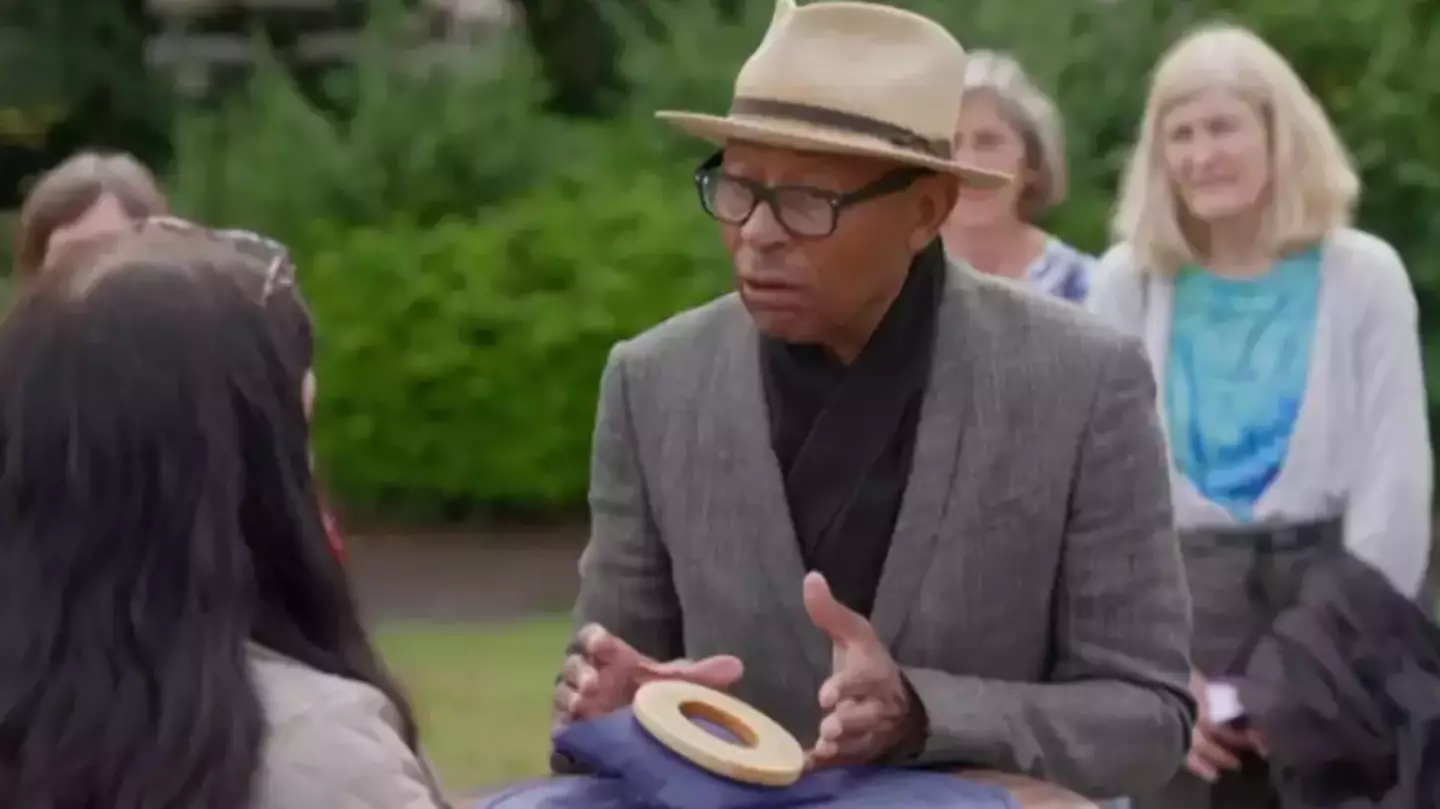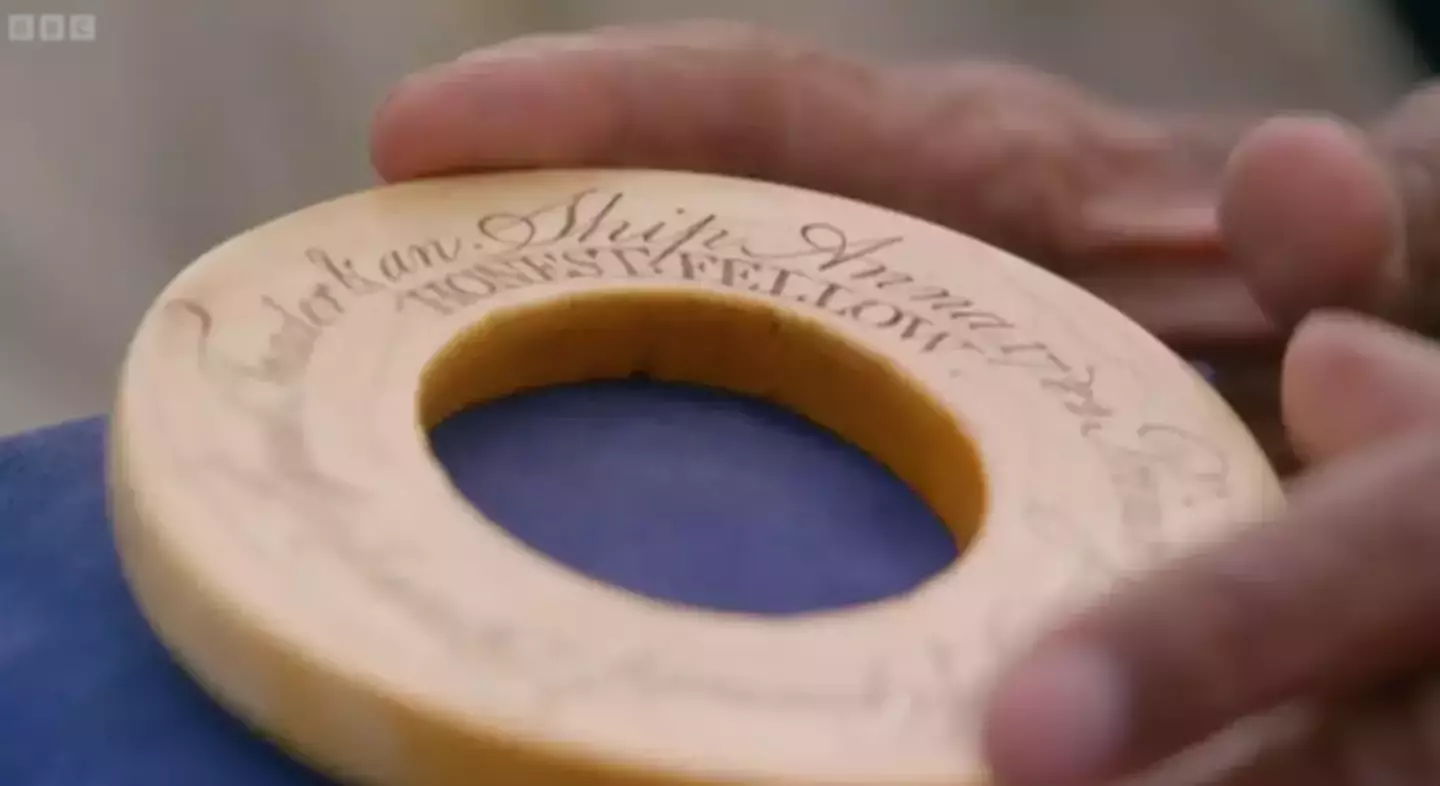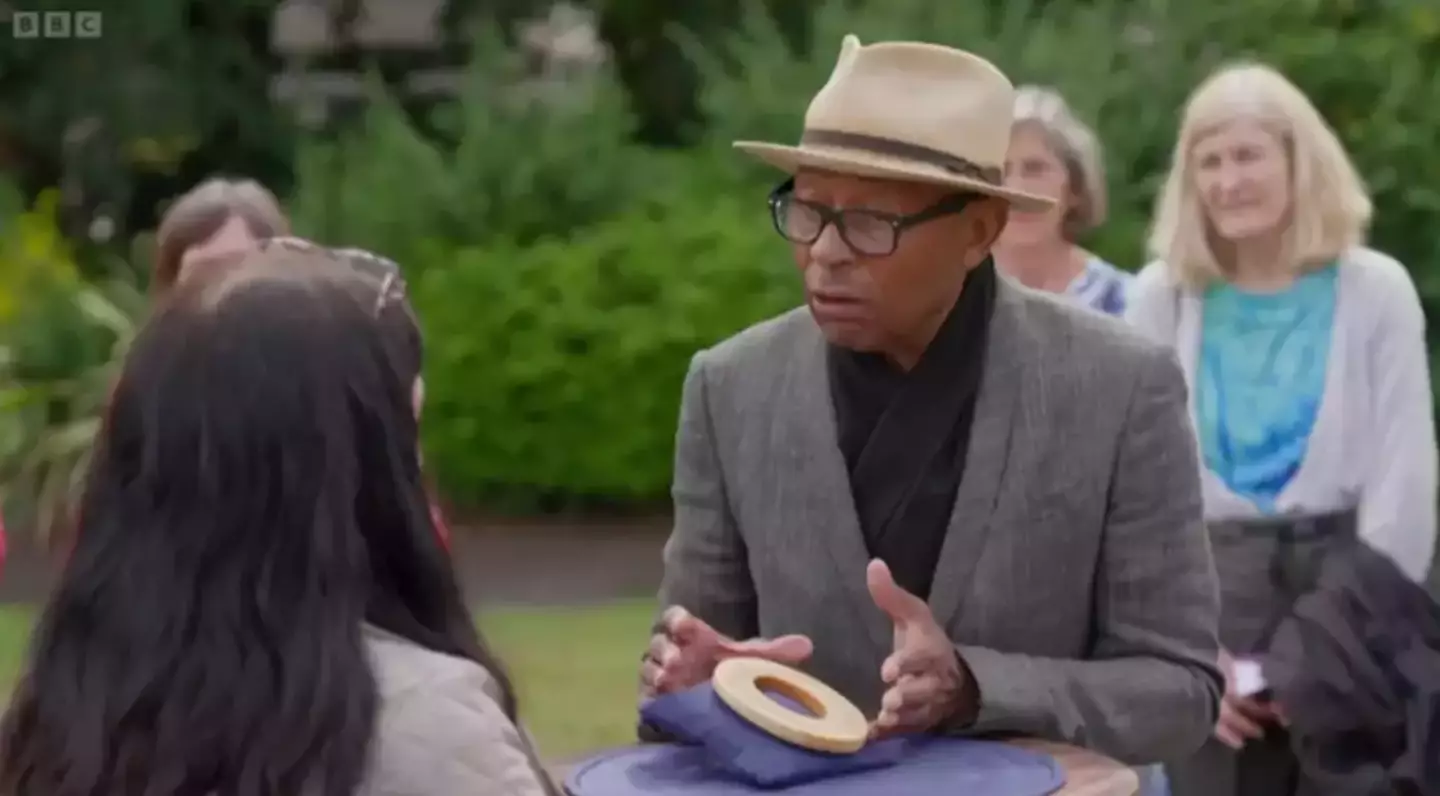
An Antiques Roadshow expert and collector was left emotional after refusing to value a certain item brought on the show.
The BBC show is a fan-favourite, having been on the air since 1979 and keeping viewers on the edge of their seats with various obscure finds from members of the British public.
It's all about knick-knacks that could have been chucked in the bin that may be worth a fortune, or thinking they're worth a lot more than they actually are. Ah, the thrill.
Advert
But on rare occasions, items that aren't valued at all are brought onto the show.
This could be due to their history or quality, but the whole point of the series is to find the true worth of old items that you stumble upon in your attic.
Expert Ronnie Archer-Morgan encountered 'one of the most difficult things' he's ever had to value on a March 2024 episode, and for good reason. He first joined Antiques Roadshow as an expert in 2011 and was faced with an item that came from a dark period in history.
What was the item?
Host Fiona Bruce took the show to Alexandra Gardens in Cardiff and found something worth focusing on, explaining in the voiceover that a woman brought a disc that 'acted as an endorsement of the professional reputation of an African slave trader in the West African port of Bonny in the 18th century'.
After seeing the antique, Ronnie was caught off guard and highlighted that both he and the show's crew 'wholly and unequivocally disapprove of the trade in ivory'.
He told the guest: "But this ivory bangle here is not about trading in ivory, it’s about trading in human life, and it’s probably one of the most difficult things that I’ve ever had to talk about. But, talk about it we must."

What did he say about it?
Despite its association with the slave trade, the expert called it 'amazing', adding that it was a 'testament to the callous trade' that took place from the 17th to the 19th centuries. He also noted that the inscription on the disc said the original owner was an 'honest trader'.
Ronnie said this was far from the truth, calling him 'despicable' and adding: "I'd like to meet him and teach him how honest I think he is.
"This is a document, the living proof, the surviving proof, that this awful trade went on.
"Look how beautiful the calligraphy is, the beauty of the calligraphy it just belies the awfulness of the message."
The guest innocently claimed she bought it for £3 at a house sale 36 years prior, and that she 'had no idea' about its significance.
She assumed 'traders' referred to coffee or spices, and was shocked to find out the truth.

Why did he refuse to value it?
Ronnie opened up about his family history, explaining his great-grandmother was a 'returned slave' from Nova Scotia in Canada, before returning to the capital of Sierra Leone, Freetown.
He said it's his 'cultural duty' to speak about the issues, adding: "I just don't want to value it. I do not want to put a price on something which signifies such an awful business.
"But the value is in the lessons that this can tell people. The value is in researching this and what we can find out.
"And I just love you for bringing it in and thank you so much for making me so sad."
Topics: Antiques Roadshow, BBC, History, TV